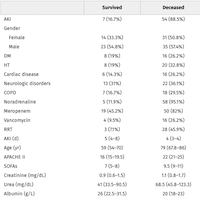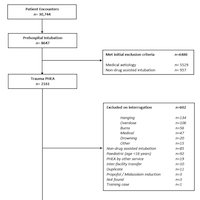Study of the Effects of Epinephrine on Cerebral Oxygenation and Metabolism During Cardiac Arrest and Resuscitation by Hyperspectral Near-Infrared Spectroscopy
journals.lww.com
Epinephrine administration by bolus resulted in transient improvements in cerebral oxygenation and metabolism, whereas continuous epinephrine infusion did not, compared with placebo. Future studies are needed to evaluate and optimize the use of epinephrine in cardiac arrest resuscitation, particularly the dose, timing, and mode of administration. Our study showed that although continuous epinephrine administration had no significant impact on overall cerebral hemodynamics, epinephrine boluses transiently improved cerebral oxygenation (oxygenated hemoglobin) and metabolism (cytochrome c oxidase) by 15% and 49%, respectively compared with the baseline (untreated) ventricular fibrillation.
















